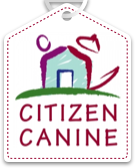Preventing Bloat in Dogs
No one likes that uncomfortable feeling of bloat. Humans hate it. Did you ever stop to think that bloated dogs feel just as miserable? Preventing bloat in dogs is critical to their well-being and good health. More seriously, because of the possibility of a veterinary emergency, signs of bloating should not be ignored.
As with humans, canines get bloated when their stomachs are overfull. The reason for that overfull sensation could be too much air or too much water. Of course, a totally understandable cause is simply too much food. Whether the stomach contents consist of gas, fluid, or food, the results are a distended belly and a sluggish pooch.
Sometimes dogs just eat too fast. They gulp down too much air with their food. Other times, they move about too vigorously too soon after mealtimes for proper digestion to occur. Overeating, over-drinking and not resting after meals all pose risk factors for bloating.
Feeding your dog more frequent smaller meals is one plan of attack. Another thing is to make sure to include wet food as part of your dog’s overall diet. Some dog parents swear by including a teaspoon of yoghurt in the dog food to encourage healthy digestion.
Unfortunately, some bloated dogs are really suffering from gastric dilatation-volvulus (GDV) wherein the dog’s stomach becomes twisted. Many GDV cases prove to be life-threatening. The problem is that you cannot tell the difference without an x-ray of the dog’s stomach.
Some types of dogs are more prone to GDV than others. For at-risk breeds, preventive surgery exists to affix the stomach so that it cannot twist. See your vet to assess whether that is appropriate for your canine friend.
In the hoped for event that GDV is not the issue, a veterinarian can offer a dog some relief. It may entail a tube down the esophagus to release gas, but it is still relief.
